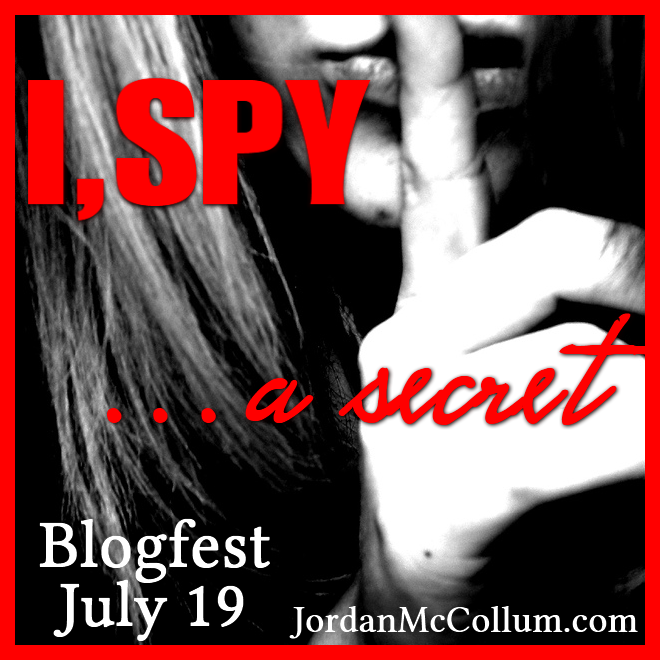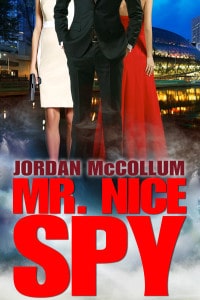by Josi S. Kilpack
 I never set out to be an author. I didn’t write other than school assignments for many years and never felt particularly good at it, though I enjoyed it more than math and science. For me, my writing started with a story and too much time on my hands. I was on bedrest with a pregnancy and spiraling into uselessness-induced depression when I had an idea for a story. A short story, I thought.
I never set out to be an author. I didn’t write other than school assignments for many years and never felt particularly good at it, though I enjoyed it more than math and science. For me, my writing started with a story and too much time on my hands. I was on bedrest with a pregnancy and spiraling into uselessness-induced depression when I had an idea for a story. A short story, I thought.
I started this short story in a spiral notebook and it just kept going and going until I’d written a full-length book by the time my baby was 6 weeks old. I transcribed it into our 15 pound laptop computer over the next couple of weeks and then let my bookgroup read it. They were supposed to give me feedback and in fact they did, but I ignored all of it. In my mind the fact that I hadn’t ever thought about being a writer and yet I’d written this book made me into some kind of prodigy. Why would I need their feedback? I researched LDS publishers via the books I had on my shelves and called them to get their addresses (pre-internet, at least for me). Then I waited and practiced how I would let down the two companies that didn’t give me the largest advance.
It didn’t work out the way I envisioned it. Instead of three companies vying for my brilliant story, two turned me down within weeks. The third held out for five loooooooong months before they sent me a rejection letter that broke my fragile confidence into a million razor sharp shards of embarrassment. While the first two companies had sent me form rejection letters, this last one was three pages of detailed reasons why they didn’t want to publish my book. I was devastated and humiliated—I’d told everyone I knew I would have published book in time for them to buy as Christmas gifts for everyone they knew.
After mourning my stupidity to think that I could actually do something as big as publishing a book, my husband suggested that the letter might have some ideas I could use to make it better. He was right. When I read it a bit more objectively I realized that they were talking about concepts I didn’t understand. I realized there was more to writing a novel than having a story. Because I’m a reader, I went to my library and checked out books about novel writing. I looked up terms like pacing, exposition, rising action, and point of view. I used what I learned to rewrite the book and thought that NOW I would enjoy that success I had dreamed about earlier. Now my book would be published and sell millions and I would buy a cabin in the woods where I would write and watch deer in the meadow beneath my huge picture window.
That didn’t work out the way I envisioned it either. Not realizing that I could resubmit my revised book to those original publishers, I sent it to a smaller press. They accepted the book under what was called the Author Participation Program, which meant I would pay $2,500.00 toward the publication of that first book, but they would cover the cost of subsequent novels. My husband and I decided that it was reasonable for me to make a financial contribution toward something that was going to change our lives. So we paid it and six months later I had my author copies. I was over the moon! I had published a book! Me; someone who never excelled at anything had done something that no one I had ever met had done before. Surely people would read my book and love it and praise me and tell all their friends.
Instead, it wasn’t available in most stores, it was very poorly edited and even more poorly marketed. In the first 6 months I sold about 200 copies, most of them to my family and friends. I had friends that pulled out red pencils to make changes as they read because the lack of editing bothered them so much. My first royalty check was for $154.00. For the record, that doesn’t even pay for a one-night stay at someone else’s cabin.
This new level of disappointment, self-doubt, and embarrassment was worse than any I’d encountered so far. I’d now invested a couple of years and more money that we could afford to lose into something that was basically a flop. I was so tempted to slide it under the couch and pretend this period of my life had never happened, but instead I decided to write a book I could be proud of. In order to do that, I needed to learn what it was I’d done wrong. My realization was in two parts 1) I didn’t know the craft of writing and therefore my story, while better than it had been prior to the revision, wasn’t well done. 2) I didn’t know the publishing industry and had not been an active part of that process and therefore at the mercy of those who were.
So, I began attending writers conferences, I started reading more writing books, I became a critical reader of other people’s books so that instead of deciding if I liked or didn’t like a book, I would pull out what details I liked and what I didn’t like, and then I would figure out how I would have fixed the parts that didn’t gel with me. It was three years before I finished another book and, though this one was accepted by other publishers, I went with my original publisher again because I felt that I had learned enough to be successful with them. I paid an editor to edit my book before I sent it in and I worked well with the new managing editor. That book sold 2,000 copies the first year, which I now knew was pretty good for the very niche LDS market. I knew how to better market my book, I knew how to learn from criticism and better craft a story. AND, I grew to love writing that by the time I had finished that second book I knew that writing was something I wanted to do for the rest of my life.
I still had a lot to learn about publishing and writing—I still do—but I knew where to find that information and I knew how to steer my own ship through the hazards. I went on to publish three more books with this first publisher. Then I moved on to a larger publisher who has helped me create a career out of the stories in my head. I’ve published thirteen books with them and could not be happier about where I am. I look back on my story and see all the struggles and hard things which are different than those of other writers and yet my struggles play the same role that other writer’s struggles do—they teach us.
From each hard thing I learned something important that I was able to build on that helped create the staircase I needed. There were tears, there were frustrations, there were feelings of failure and embarrassment and pure fatigue. But I was able to use those things to my advantage and in the process learn that while I worked toward becoming a better writer, the more important thing happening was that I was becoming a better person.
I have learned how to learn, I’ve learned about publishing, and self-discipline; perseverance, time management, goal setting, focus, and faith. I’ve learned to teach and market and manage my own website. I’ve learned to prioritize and how important it is to cheer on other people, writers or not. My best friends are writers. Writing has become so much more than getting my stories published. It has become the university that is helping me become the best Josi I can be and that is of far more value than my books will ever be.
If I had to boil down my experience into a secret ingredient—it would be that I didn’t stop. I didn’t stop when things were going badly, but I also didn’t stop when I began to have success. I didn’t stop learning, I didn’t stop growing. For that, I will always be grateful. I am so glad that I didn’t stop.
About the author
Josi S. Kilpack hated to read until her mother handed her a copy of The Witch of Blackbird Pond when she was 13. From that day forward, she read everything she could get her hands on and accredits her writing “education” to the many novels she has “studied” since then. She began writing her first novel in 1998 and never stopped. Her novel, Sheep’s Clothing, won the Whitney Award 2007 for Mystery/Suspense. Lemon Tart, the first book in the Sadie Hoffmiller Culinary Mystery series, was a finalist in 2009. Josi currently lives in Willard, Utah, with her husband, children and super-cute cat.
 The latest installment in the Sadie series, Baked Alaska, follows the senior sleuth on an Alaskan cruise with her two grown children. But even as the crew prepares to leave port, Sadie has suspicions about the voyage ahead and the relationship between her normally easygoing son and a mysterious female passenger he obviously knows but refuses to discuss. When the woman is discovered unconscious during the second night at sea, Sadies apprehension escalates. Over the last few years, Sadie has developed an extreme dislike for secrets and it would seem her son is keeping one from her.
The latest installment in the Sadie series, Baked Alaska, follows the senior sleuth on an Alaskan cruise with her two grown children. But even as the crew prepares to leave port, Sadie has suspicions about the voyage ahead and the relationship between her normally easygoing son and a mysterious female passenger he obviously knows but refuses to discuss. When the woman is discovered unconscious during the second night at sea, Sadies apprehension escalates. Over the last few years, Sadie has developed an extreme dislike for secrets and it would seem her son is keeping one from her.
 One of the things I love most about writing is the capacity to learn. I love learning! At times it seems overwhelming because there is so much that I need to learn, to master, and I’ve already been working hard on my craft for over a decade. On the flip-side, writing will never be stale to me because there is always room for improvement. Thank goodness I enjoy a good challenge—usually!
One of the things I love most about writing is the capacity to learn. I love learning! At times it seems overwhelming because there is so much that I need to learn, to master, and I’ve already been working hard on my craft for over a decade. On the flip-side, writing will never be stale to me because there is always room for improvement. Thank goodness I enjoy a good challenge—usually! 



 1. The theme is I Spy . . . a secret. It’s all about keeping a secret from someone you love. So what do you put in your post?
1. The theme is I Spy . . . a secret. It’s all about keeping a secret from someone you love. So what do you put in your post?

 I never set out to be an author. I didn’t write other than school assignments for many years and never felt particularly good at it, though I enjoyed it more than math and science. For me, my writing started with a story and too much time on my hands. I was on bedrest with a pregnancy and spiraling into uselessness-induced depression when I had an idea for a story. A short story, I thought.
I never set out to be an author. I didn’t write other than school assignments for many years and never felt particularly good at it, though I enjoyed it more than math and science. For me, my writing started with a story and too much time on my hands. I was on bedrest with a pregnancy and spiraling into uselessness-induced depression when I had an idea for a story. A short story, I thought.

